Audi Q7 vs Mercedes EQS – Which one offers the better deal?
Everyday use, family trips or long-distance drives – here’s where the differences show.
Discover whether Audi Q7 or Mercedes EQS fits your lifestyle better.
Costs and Efficiency:
Price and efficiency are often the first things buyers look at. Here it becomes clear which model has the long-term edge – whether at the pump, the plug, or in purchase price.
Audi Q7 has a clearly perceptible advantage in terms of price – it starts at 69300 £, while the Mercedes EQS costs 93900 £. That’s a price difference of around 24558 £.
As for range, the Mercedes EQS performs convincingly better – achieving up to 816 km, about 732 km more than the Audi Q7.
Engine and Performance:
Under the bonnet, it becomes clear which model is tuned for sportiness and which one takes the lead when you hit the accelerator.
When it comes to engine power, the Mercedes EQS has a slight edge – offering 544 HP compared to 507 HP. That’s roughly 37 HP more horsepower.
In acceleration from 0 to 100 km/h, the Audi Q7 is hardly perceptible quicker – completing the sprint in 4.10 s, while the Mercedes EQS takes 4.40 s. That’s about 0.30 s faster.
In terms of top speed, the Audi Q7 performs to a small extent better – reaching 250 km/h, while the Mercedes EQS tops out at 210 km/h. The difference is around 40 km/h.
There’s also a difference in torque: Mercedes EQS pulls to a small extent stronger with 858 Nm compared to 770 Nm. That’s about 88 Nm difference.
Space and Everyday Use:
Whether family car or daily driver – which one offers more room, flexibility and comfort?
Seats: Audi Q7 offers noticeable more seating capacity – 7 vs 5.
In curb weight, Audi Q7 is noticeable lighter – 2055 kg compared to 2545 kg. The difference is around 490 kg.
In terms of boot space, the Audi Q7 offers evident more room – 887 L compared to 610 L. That’s a difference of about 277 L.
In maximum load capacity, the Audi Q7 performs clearly perceptible better – up to 2255 L, which is about 485 L more than the Mercedes EQS.
When it comes to payload, Audi Q7 distinct takes the win – 885 kg compared to 565 kg. That’s a difference of about 320 kg.
Who comes out on top?
Overall, the Audi Q7 shows itself to be has a very small edge and secures the title of DriveDuel Champion.
It convinces with the more balanced overall package and proves to be the more versatile choice for everyday use.
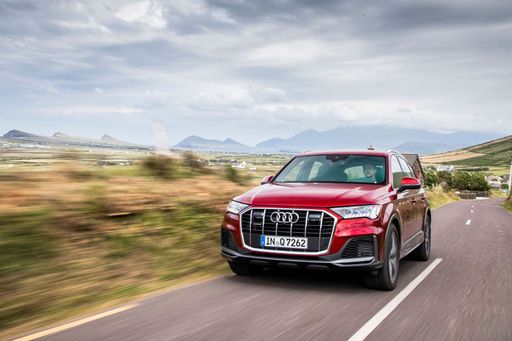
Audi Q7
Audi Q7
The Audi Q7 combines luxurious comfort with impressive versatility, making it a standout choice in the SUV market. Its sophisticated design and meticulous attention to detail create an elegant yet robust presence on the road. With advanced technology and a focus on safety, the Q7 ensures a premium driving experience for both the driver and passengers.
details @ audi-mediacenter.com
@ audi-mediacenter.com
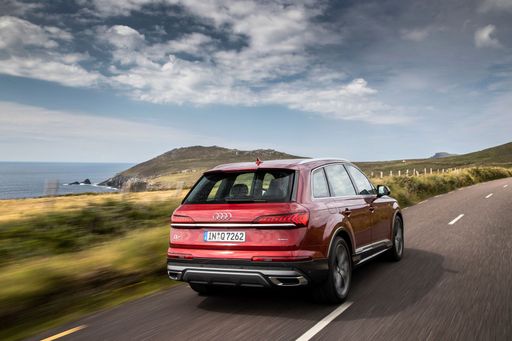 @ audi-mediacenter.com
@ audi-mediacenter.com
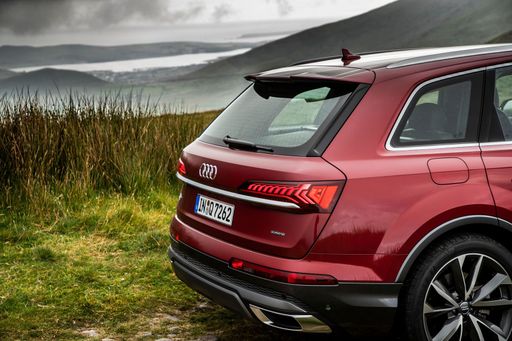 @ audi-mediacenter.com
@ audi-mediacenter.com
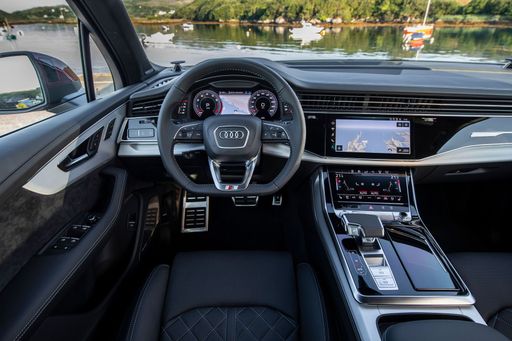 @ audi-mediacenter.com
@ audi-mediacenter.com
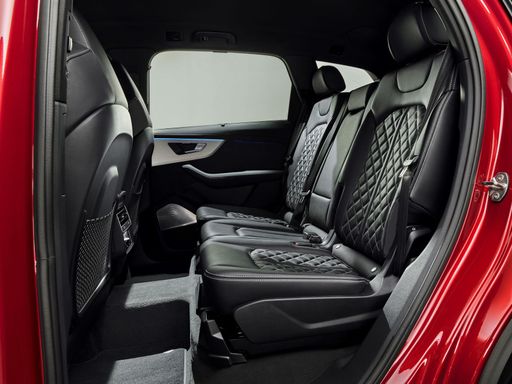 @ audi-mediacenter.com
@ audi-mediacenter.com
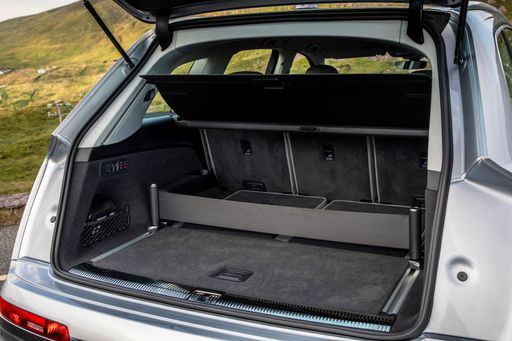 @ audi-mediacenter.com
@ audi-mediacenter.com
Mercedes EQS
The Mercedes-Benz EQS redefines luxury in the realm of electric vehicles, combining exceptional comfort with cutting-edge technology. Its sleek and aerodynamic design is a testament to both elegance and efficiency, setting new standards for the brand. Inside, the EQS offers a serene and spacious cabin equipped with the latest advancements, ensuring a refined driving experience.
details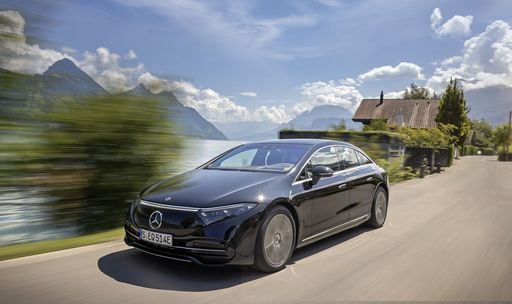 @ group-media.mercedes-benz.com
@ group-media.mercedes-benz.com
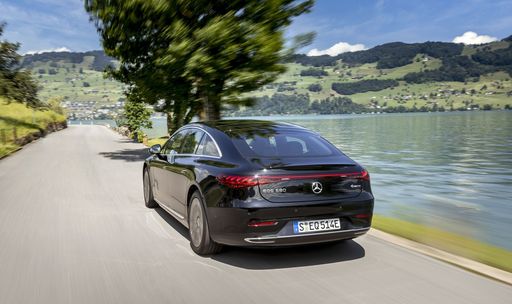 @ group-media.mercedes-benz.com
@ group-media.mercedes-benz.com
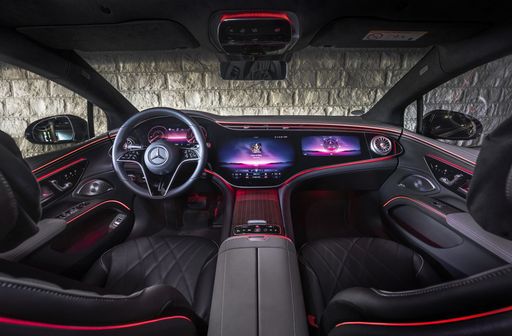 @ group-media.mercedes-benz.com
@ group-media.mercedes-benz.com
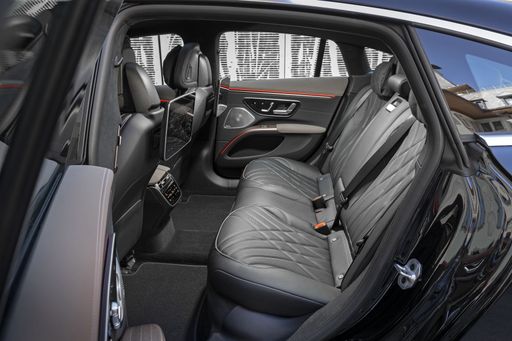 @ group-media.mercedes-benz.com
@ group-media.mercedes-benz.com
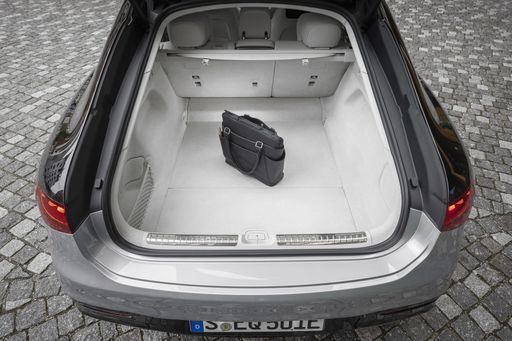 @ group-media.mercedes-benz.com
@ group-media.mercedes-benz.com

|

|
|
|
|
Costs and Consumption |
|
|---|---|
|
Price
69300 - 99000 £
|
Price
93900 - 123500 £
|
|
Consumption L/100km
1.2 - 11.9 L
|
Consumption L/100km
-
|
|
Consumption kWh/100km
-
|
Consumption kWh/100km
16.5 - 17.2 kWh
|
|
Electric Range
83 - 84 km
|
Electric Range
790 - 816 km
|
|
Battery Capacity
22 kWh
|
Battery Capacity
118 kWh
|
|
co2
28 - 271 g/km
|
co2
0 g/km
|
|
Fuel tank capacity
75 - 85 L
|
Fuel tank capacity
-
|
Dimensions and Body |
|
|---|---|
|
Body Type
SUV
|
Body Type
Hatchback
|
|
Seats
5 - 7
|
Seats
5
|
|
Doors
5
|
Doors
5
|
|
Curb weight
2055 - 2460 kg
|
Curb weight
2545 - 2655 kg
|
|
Trunk capacity
563 - 887 L
|
Trunk capacity
610 L
|
|
Length
5072 mm
|
Length
5223 mm
|
|
Width
1970 mm
|
Width
1926 mm
|
|
Height
1703 - 1735 mm
|
Height
1512 mm
|
|
Max trunk capacity
1863 - 2255 L
|
Max trunk capacity
1770 L
|
|
Payload
640 - 885 kg
|
Payload
550 - 565 kg
|
Engine and Performance |
|
|---|---|
|
Engine Type
Petrol MHEV, Plugin Hybrid, Diesel MHEV, Petrol
|
Engine Type
Electric
|
|
Transmission
Automatic
|
Transmission
Automatic
|
|
Transmission Detail
Automatic Gearbox
|
Transmission Detail
Reduction Gearbox
|
|
Drive Type
All-Wheel Drive
|
Drive Type
All-Wheel Drive, Rear-Wheel Drive
|
|
Power HP
231 - 507 HP
|
Power HP
360 - 544 HP
|
|
Acceleration 0-100km/h
4.1 - 7.1 s
|
Acceleration 0-100km/h
4.4 - 6.2 s
|
|
Max Speed
226 - 250 km/h
|
Max Speed
210 km/h
|
|
Torque
500 - 770 Nm
|
Torque
568 - 858 Nm
|
|
Number of Cylinders
6 - 8
|
Number of Cylinders
-
|
|
Power kW
170 - 373 kW
|
Power kW
265 - 400 kW
|
|
Engine capacity
2967 - 3996 cm3
|
Engine capacity
-
|
General |
|
|---|---|
|
Model Year
2025
|
Model Year
2024
|
|
CO2 Efficiency Class
G, B
|
CO2 Efficiency Class
A
|
|
Brand
Audi
|
Brand
Mercedes-Benz
|
Is the Audi Q7 offered with different drivetrains?
Available configurations include All-Wheel Drive.
The prices and data displayed are estimates based on German list prices and may vary by country. This information is not legally binding.
